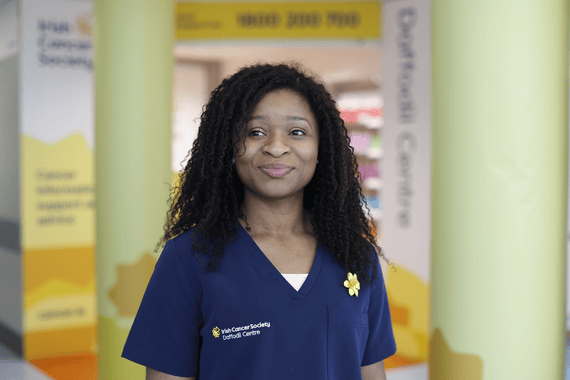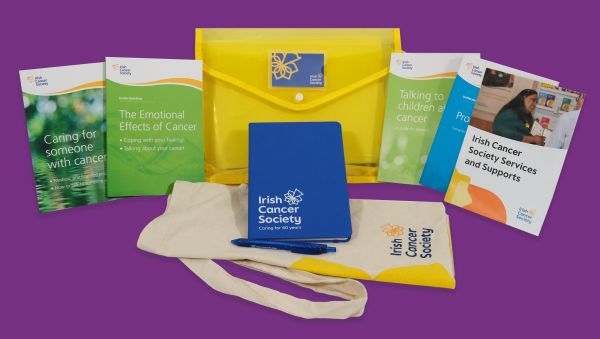Testicular cancer
Diagnosis and tests
Diagnosing testicular cancer
Your family doctor (GP) will talk to you about your symptoms. Your GP will refer you to hospital if they think you need more tests.
Tests you might have include:
Passing a probe over your testicles to produce a picture of the tissues inside your scrotum. It can show if any lump is likely to be cancer or not. It’s normal for both your testicles to be scanned.
Read more about ultrasound scans.
Blood tests can spot ‘tumour markers’– chemicals released by some testicular cancers. Tumour markers include alpha-fetoprotein (AFP), beta human chorionic gonadotrophin (bHCG) and lactate dehydrogenase (LDH).
Usually your doctor will remove the testicle if cancer is even suspected. This is because it is not usually possible to diagnose testicular cancer by taking a tissue sample (biopsy) without removing the testicle.
The lump from the testicle is then examined under a microscope to see if it contains cancer cells.
A urologist is a doctor who specialises in treating problems with the urinary system and the male reproductive system, including the testicles.

If you are diagnosed with testicular cancer, we're here for you.
Our cancer nurses are here if you need information or just want to talk. They can help you to understand your diagnosis and what to expect, send you information and tell you about our services.
The tests you have can help to:
- Stage your cancer. This means finding out where the cancer is in your body - its size and if it has spread.
- Grade your cancer. Grading describes the cancer cells - what they look like under the microscope and how they might grow.
Some tests may be used see how you are responding to treatment.
Waiting for test results
While some results may come back quickly, others may take a few weeks.
Waiting for results can be an anxious time. It may help to talk things over with your doctor or nurse or with a relative or close friend.
You can also call our Support Line on 1800 200 700 or visit a Daffodil Centre to speak to a cancer nurse.
What are the stages of testicular cancer?
Staging means finding out how big the cancer is and if it has spread to other parts of your body. Staging will help your doctor to plan the best treatment for you.
There are different ways to describe testicular cancer stages. The main way to stage testicular cancer is the Stage 1, 2 or 3 system. There is no stage 4 with testicular cancer.
Some doctors may use other systems, such as the TNM system.
The stage 1, 2 or 3 system
This is the main way that doctors stage testicular cancer. A higher number means a more advanced cancer. The stages are:
This means the tumour is found only in the testicle. It has not spread and no lymph nodes are involved. Tumour markers are normal or only slightly raised. (Tumour markers are chemicals or proteins found in the blood. While not everyone with testicular cancer will have raised tumour markers, they can help to diagnose testicular cancer and will be monitored during and after treatment.)
Stage 1s means markers are raised after surgery.
The cancer has spread outside the testes to the lymph nodes in the abdomen (tummy). The size of the nodes can vary:
- Stage 2a nodes are less than 2cm
- Stage 2b nodes are 2-5cm
- Stage 2c nodes are larger than 5cm
The cancer has spread to other organs such as the lungs, liver, bone and brain. This is known as metastasis.
- Stage 3a means the cancer has spread to distant lymph nodes or to your lungs. Your blood marker level may be normal (S0) or slightly raised (S1)
- Stage 3b means the cancer has spread to nearby lymph nodes or lungs and you have a moderately high marker level (S2)
- Stage 3c can mean that you have a very high tumour markers (S3) or that your cancer has spread to another organ, such as the liver or brain.
TNM staging system
The TNM staging system looks at the:
- Size of the tumour (T)
- If the cancer has spread to your lymph nodes (N)
- If the cancer has spread to other parts of your body (M for metastasis)
Your doctor often uses this information to give your cancer a number stage – from 0 to 3. A higher number, such as stage 3, means a more advanced cancer. Some stages are further divided into stage A and B
Knowing the stage of your cancer helps your team to plan the best treatment for you. It can be hard to understand, so ask your doctor and nurse for more information if you need it.
Continue reading about testicular cancer




Get help & support

Support Line
Free support pack


